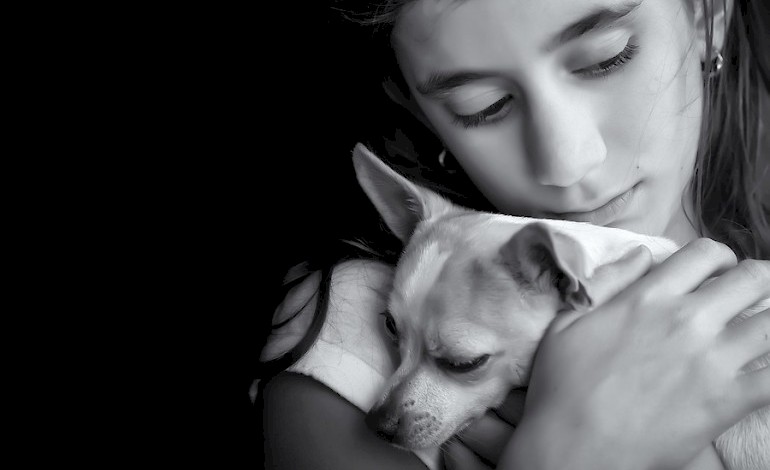Helping a Child Through The Loss of a Pet
Posted: 19 June 2016

In order to support children through the death of a pet it is important to consider their age and level of understanding. However, there are a few guidelines which will apply regardless of age:
- Choose a quiet time to talk with no distractions.
- Use language that the child is familiar with. When trying to be comforting it is easy to get caught in introducing new words and then get side tracked into explaining their meaning. Being aware of this helps keep things simple and clear.
- It can be easy to avoid talking to a child as it may be upsetting but it is important that they hear things from a parent first rather than overhearing a conversation or through someone else.
- Avoid making assumptions about how they feel. It is important to remind parents that their children’s relationship with their pet may have been different to their own. Do not make any judgements concerning their expression of / or apparent absence of grief.
- Never use terms such as ‘be strong’ or discourage them from crying.
- Always tell children the truth. The degree of detail will vary depending upon the age of the child but it is important not to lie about the basic facts. Death is a natural part of the cycle of life and supporting a child with honesty is a crucial part of their emotional development.
- Do not use euphemisms such as ‘put to sleep’ or ‘God has taken them’. This is particularly relevant with younger children as they will take the words literally and may develop a fear of bedtime or about God being able to ‘take’ loved ones.
- Remember that pets of any size can have a profound emotional impact on children.
- As much as possible involve the child in any ceremony. If a burial or cremation is occurring ask if they would like to give something to be buried with their pet, maybe they could write a poem or draw a picture. If the pet is to stay with the vet, having a small remembrance ceremony at home is very helpful.
- If the pet is to be euthanized discuss this with the child beforehand. It can be very shocking for a child to just discover that the pet has gone with no warning. For younger children it is helpful to talk about the health of the animal recently and draw their mind to any signs of illness or old age that are apparent. For an older adolescent allowing them to feel part of the decision making process can be very important.
- The question of whether the child should attend is very much an individual choice and the parent’s must decide given the circumstances, taking into consideration the maturity of the child. A general guide is wherever possible to give the child the option to attend if they want to. Talking the process through with the vet and explaining what will happen will help the child understand what is involved. If a child is too young to make the choice then it may be best for them not to be present. If a younger child wants to be present then having an additional person on standby should they want to leave is useful.
- Witnessing adults being open about their own sorrow allows children to feel less isolated in their grief. While it is important not to hide their feeling parents should avoid displays of uncontrollable emotion as this may be frightening for young children.



